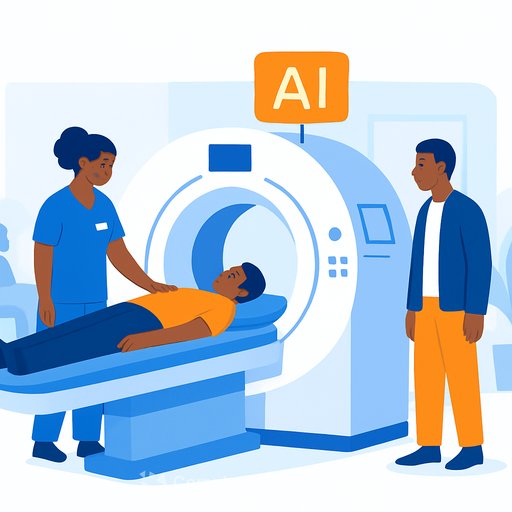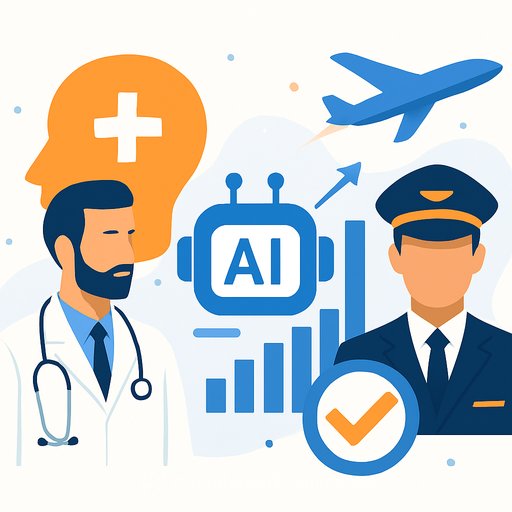The Western Cape Government has approved its first provincial artificial intelligence (AI) policy framework specifically for public healthcare. This framework sets clear ethical standards to balance innovation with patient safety and human dignity, especially important within a healthcare system that faces significant resource constraints. Its goal is to improve healthcare efficiency, reduce waiting times, and expand access equitably, while ensuring human oversight, fairness, and transparency remain key throughout AI adoption.
Healthcare Under Strain
South Africa faces critical shortages in healthcare resources — with only 0.31 doctors per 1,000 people, well below the World Health Organization’s recommendations. Patient demand regularly exceeds system capacity, making AI a valuable tool to enhance diagnostics, improve efficiency, and streamline service delivery. Yet, healthcare involves sensitive issues like privacy and equitable access, so introducing AI must be done carefully. The Western Cape’s policy embeds ethical principles to manage these challenges responsibly.
Core Ethical Principles of the AI Framework
The policy is built on five globally recognised ethical principles that protect citizens and ensure AI is used responsibly in healthcare:
- Beneficence — AI must serve the public good.
- Non-maleficence — Systems must protect privacy, minimise bias, and avoid harm.
- Human Oversight — Final decisions stay with healthcare professionals, not machines.
- Fairness — AI should not entrench or create discrimination.
- Transparency — Patients should know if and how AI is used, including accountability.
Case Study: AI Retinal Screening in Khayelitsha
Khayelitsha, Cape Town’s largest township with nearly 500,000 residents, faces a high prevalence of diabetes and rising cases of diabetic retinopathy—a leading cause of adult blindness. Access to specialist eye care is limited.
The Solution
- AI-powered retinal screening was introduced at four primary healthcare clinics.
- Healthcare workers capture retinal images that an AI tool analyses to detect diabetic retinopathy and its severity.
- Urgent cases are fast-tracked to ophthalmologists at Khayelitsha District Hospital for laser treatment.
- Patients with less severe conditions receive care within their communities.
The Impact
- Early detection has been accelerated.
- Pressure on specialist services has decreased.
- Access to quality eye care has become more equitable.
This initiative illustrates how AI can boost healthcare capacity and reduce inequality without replacing the expertise of medical professionals.
Potential Benefits for South Africa’s Public Healthcare
The Western Cape’s framework highlights several areas where AI can create real improvements:
- Cutting Administrative Load — AI tools such as medical scribes can handle documentation, freeing clinicians for more patient interaction.
- Reducing Medical Errors — AI-assisted decision-support systems have shown to reduce errors by over 70% in pilot programs across East Africa.
- Bridging Language Barriers — Real-time translation tools can support consultations in multiple languages, improving care equity.
- Encouraging Responsible Innovation — The framework creates a safe space for experimentation, positioning the Western Cape as a leader in AI-driven public health solutions.
Balancing Innovation and Patient Rights
The government stresses that adopting AI is necessary. Avoiding it risks worsening inequalities by delaying diagnoses, increasing wait times, and letting private providers and wealthier nations pull ahead. However, innovation cannot come at the cost of privacy, dignity, or fairness.
“When used thoughtfully, AI strengthens the work of nurses, doctors, and specialists rather than replacing them,” stated the Western Cape Government. “We must lead with integrity, transparency, and respect for human rights to ensure technology serves people, not the other way around.”
Looking Ahead
With this policy, the Western Cape is setting a path toward smarter, more inclusive digital health systems. The framework supports scaling AI-powered diagnostics across the province and building public trust through responsible governance.
The ultimate goal is a healthcare future where every resident—regardless of income, location, or background—can access quality care enhanced by innovation, without sacrificing equity or dignity.
Your membership also unlocks:





